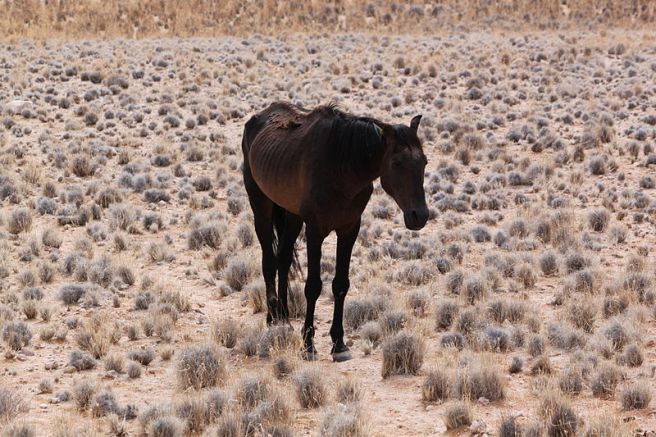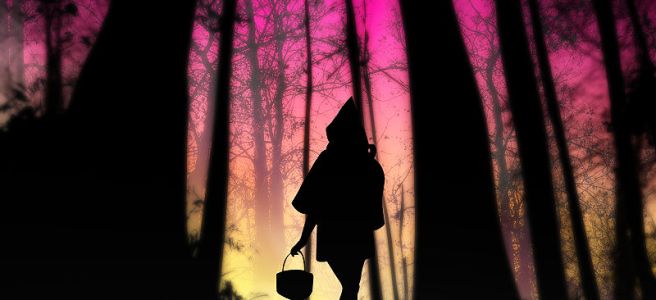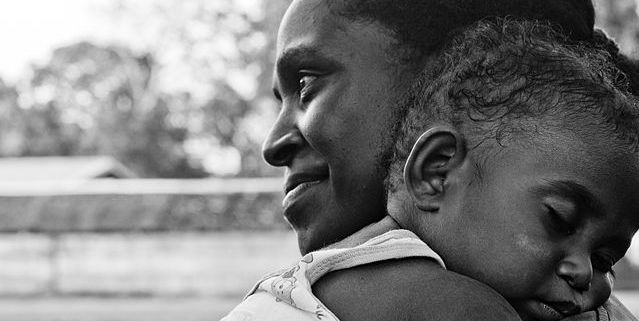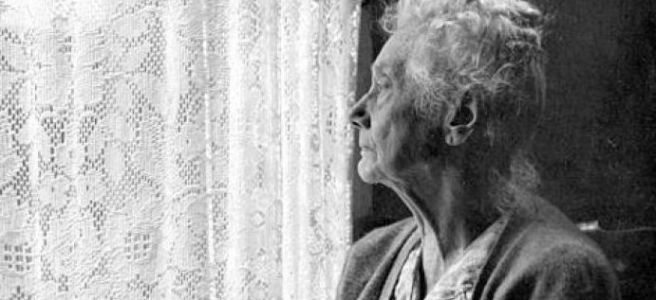Regarding The Unreliability Of Buses in The Desert In Late July by Alexis Rhone Fancher
The Girl
She wouldn’t last the afternoon.
Chalk white. Redheaded determination against
the soul-crushing Mohave.
What kind of life was it anyway,
when the closest thing to civilization was a mall
twenty miles away?
The pretty ones, her mama said,
rarely had far to walk.
The Mother
Nothing ages a woman like a dead kid.
Except, maybe, the desert.
Skin turned to parchment.
Age spots on her hands. A penance.
She stuffed them in her pockets.
The Man
The girl climbed into his dusty pick up.
Those tiny shorts, metal zipper flashing back
the sun, playing off the skin of her inner thigh.
It was like a dream, he told the police.
The Mall
glistened. Macy’s. Target. The Body Shop. Mrs. Field’s. The Sharper Image.
Victoria’s Secret. Wetzel’s Pretzels.
Every Kiss Begins With Kay.
The Mother
She sat at the table in the small trailer and
watched the sun flatline behind the highway.
Then she raised her glass of hard lemonade.
Here’s to the dead kid. She saluted
the faded snapshot, tacked up above the sink.
The blue-eyed girl in the photo
looked right through her.
Outside, the highway trembled as the bus
whizzed by, asphalt searing the tires,
their high whine a love song, a murmur.
My girl. The one with big ambition.
We all figured she’d be the one to get away.
for Chelsea Kashergen
First published in Loch Raven Review.
That Mother by Roberta Beary
My daughter is watching Frozen with friend.
I am cleaning out the linen closet.
Here is my stash of perfume samples from Bloomingdales.
I put them in a little basket.
I want to be another kind of mother.
Who comes home and climbs into bed.
Wearing nothing but sample perfume from Bloomingdales.
I want to be that mother in the Long Bar at Raffles.
Sipping the perfect Singapore Sling.
Frozen is almost over.
I take my Singapore Sling and sit near my daughter and her friend.
They open all the packets of perfume.
My daughter gets to keep the little basket.
Lost in the Lines of Laundry by Jeff Burt
Three laundry lines in the backyard,
poles tilted toward each other
like an old couple, towels like windows,
sheets like doors, fresh opportunities
to happy worlds of hide-and-seek
where one boy is never found,
lost in the lines, sheets ruffled,
clothes pins scattered, basket hollow,
mother screaming, sisters crying.
Decades later the same discomfort
she said, a continent away.
Today at the dryer she shook
a sheet hoping I would fall out.
Diary Excerpt from a Year When I Hated Mother’s Day by Wilda Morris
It is hard hearing yourself called
a saint for adopting five children
when you know you are in
over your head, when the shawl
across your shoulders is guilt,
when the temper you never knew you had
is the warp, you sharp tongue
the woof of a tapestry of failure,
of flaws, of fault. Your hyper child
pulls his siblings into the vortex
and the whirlpool spins you
out of control. You take a bad
book’s parenting advice,
exit the back door and let loose
with a primal scream.
All it accomplishes is a sore throat,
a neighbor’s strange look.
Detangling by Maya Wahrman
I’m washing my hands,
the water scalds
then is comfortably hot.
Soap, lather, it hits
me, the smell of sarkál,
the Israeli conditioner my mom
once rubbed into our scalps, certain
soaps in this life smell
like this, that time
I had lice, the long salty
day at the beach. Last night
I was held asleep by
broad shoulders, the kind
into which you melt
protected. My unruly
hair tickling his chest.
But this strong smell,
chemical secrets and
security, a softness
that can only belong
in the past. My ima
sitting with me by
the tub, carefully combing,
my small frame
in her smooth thighs,
her free thumb circling
against my shoulder
to keep me calm.
Mirror by Catherine Zickgraf
She finds her firstborn son.
He appears in her Myspace search
the day he completes his childhood.
They share a cigarette on her front step
(and quit together soon thereafter).
They discuss his NA meetings, what it’s like
to be an eighteen-year-old high school junior.
She explains her hospitalization last summer—
how it surprised her to regress at thirty two.
He leans in to wrap arms around her shoulders,
sun icing over behind tree fringe,
smoke sky sliding into horizon. They wear knit hats
and both always sensed it, this bond beyond first sight.
Fissure by Timothy Pond
You have effected a masterful
disturbance upon the
landscape of my face.
It’s your m.o., it keeps
you dealer, driver, maestro,
Holder of the stick at the end of
the carrot,
the one and only well of
maternal approval.
Dry, dry–I drop my divining rod
in favor of an oil drill.
But in the dust bowl roulette,
neighboring farms can gush
and gush
and my one and only well
can stay dry.
And I can drill until
I crack a fissure monument
in the landscape
as the family business
perpetuates.
First published in The Bees Are Dead.
My Mother by Lynn Green
You were a crisp white shirt and a dry martini,
a bounding Labrador and Jackie O,
were center court at Wimbledon, essence of life itself.
Ripening by Megan Denese Mealor
mother was our madness
and our curves
even her silhouettes were silver
mother could grow marigolds
in november
she was our snake charmer
our static cling
Previously published in BROAD!
Nighthawks by Roberta Beary
tonight her breathing’s more shallow. i try to find her favorite songs. search quickly on my iPad. mack the knife by Bobby; replays of Vera’s, we’ll meet again. but mostly i just talk and she listens. eyes glued shut in coma-land. well past morning i kiss her rice-paper face. stroke her white hair. a voice is crying, calling mama, mama. a word back from dead. executed in the land of assimilation. just after noon mama curls in fetal position. i keep watch: rise and fall of out-of-breath beats. too soon it comes. ebb tide.
autumn coolness
enters a hand
long held in mine
First published in Tinywords.

Alexis Rhone Fancher is published in Best American Poetry 2016, Verse Daily, Plume, Rattle, The American Journal of Poetry, Diode, Tinderbox, Nashville Review, and elsewhere. She’s the author of 4 poetry collections, including State of Grace: The Joshua Elegies, (2015), Enter Here, (2017), and Junkie Wife, (2018). Her photos are published worldwide, including River Styx, and the covers of Witness, Heyday, The Chiron Review, and Nerve Cowboy. A multiple Pushcart Prize and Best of the Net nominee, Alexis is poetry editor of Cultural Weekly. She lives in Los Angeles. http://www.alexisrhonefancher.com
Roberta Beary identifies as gender-expansive, and writes to connect with the disenfranchised, to let them know they are not alone. She is the author of three books of poems: Deflection (Accents, 2015) nothing left to say (King’s Road Press, 2009) and The Unworn Necklace (Snapshot Press, 2007, 5th ed. 2017) which was a finalist in the Poetry Society of America annual book awards). Beary is the editor/co-editor of the haiku anthologies Wishbone Moon (Jacar Press, 2018) fresh paint (Red Moon Press, 2014), 7 (Jacar Press, 2013), dandelion clocks (Haiku Society of America, 2008) and fish in love (Haiku Society of America, 2006). Her work appears in Rattle, KYSO Flash, Beltway Quarterly Review and Haiku In English The First Hundred Years (Norton, 2013). Beary’s work has been nominated for Best of the Net and multiple Pushcart Prizes. She lives in County Mayo, Ireland.
Jeff Burt lives in Santa Cruz County, California, with his wife and a July abundance of plums. He has work in The Monarch Review, Spry, LitBreak, Wisconsin Review, and won the 2017 Cold Mountain Poetry Prize.
Wilda Morris is President of Poets and Patrons of Chicago and Past President of the Illinois State Poetry Society. Her poems have found homes in numerous anthologies, webzines, and print publications, including Christian Science Monitor, The Alembic, Chaffin Journal and The Kerf. She has won awards for both formal and free verse, and has been nominated for the Pushcart Prize. Her book, Szechwan Shrimp and Fortune Cookies: Poems from a Chinese Restaurant, was published by Rockford Writers’ Guild Press in 2008. Her poetry blog is found at wildamorris.blogspot.com.
Maya Wahrman graduated from Princeton University’s Department of History with certificates in Creative Writing and Near Eastern Studies. She currently work at Princeton’s Office of Religious Life on issues of religion and forced migration. She has opinion pieces published in the History News Network and the English and Hebrew editions of Haaretz, and have had poetry published in Lilith Magazine, Love, Struggle, Resist, Fifth Wednesday Journal, The Copperfield Review, the Jewish Currents Poetry Anthology Urge, Sweet Tree Review, Heartwood Literary Magazine, and Nassau Literary Review.
Catherine Zickgraf has performed her poetry in Madrid, San Juan and three dozen other cities. She’s differently-abled now—walking with a cane and flying in her sleep—so her main jobs are to hang out with her family and write more poetry. Watch/read her at caththegreat.blogspot.com and run/jump while you are able.
Timothy Pond loves the Staten Island Ferry because it’s orange and a free way to escape Manhattan. She is named after the grass.
Lynn Green is British American and co-founded a Real Estate Brokerage in Austin, Texas. In 2012 she returned to college to complete a degree in creative writing and is now writing full time. Her first short story, Cheese Whiz, won a thematic competition in The Knot magazine. She has written two children’s stories, a novel, and is currently working on a series of short stories.
Megan Denese Mealor is a double Pushcart Prize nominee. Her work has been featured widely in numerous journals, most recently The Opiate, Maudlin House, The Metaworker, The Ministry of Poetic Affairs, Van Gogh’s Ear, Firefly, Poehemian, Fowl Feathered Review, Weekly Poetry, Visitant Lit, The Furious Gazelle, Rumble Fish, RAW, and Harbinger Asylum. Her debut poetry collection, Bipolar Lexicon: An Akathisia of Expressed Emotion, is forthcoming in October 2018 from Unsolicited Press. She also serves as a new volunteer reader for E&GJ Press. Diagnosed with bipolar disorder in her teens, Megan’s underlying mission is to inspire others stigmatized for their mental health. Her loves include alligators, air hockey, astrology, baking, swimming, snorkeling, crocheting, calligraphy, painting, beachcombing, ghost hunting, origami, and paintball. She lives in her native land of Jacksonville, Florida with her partner of six years, their four-year-old son, and two mollycoddled cats.


























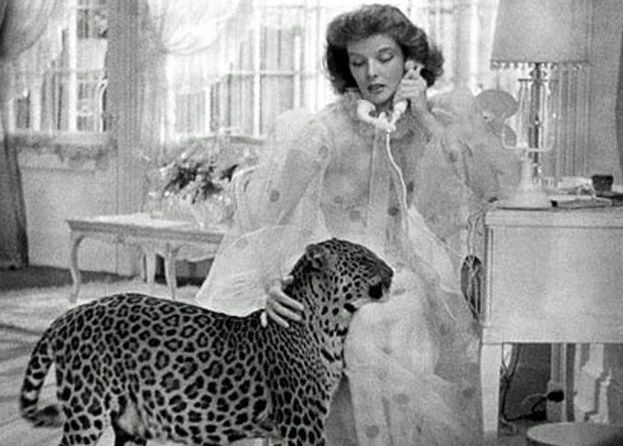












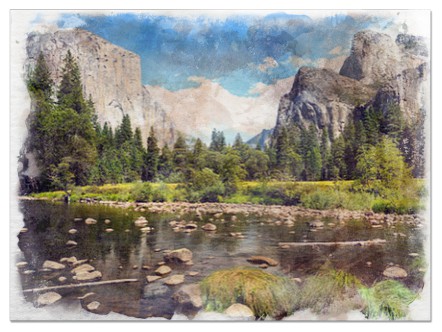












































 "Did I mention I'm a geologist?" --often told lie by Ryan Zinke*
Who doesn't look at the mountain and wonder,
What could that be put to use for?
Who doesn't look where the ancestors are buried,
and wonder what their time would be like
stuffed full of chemicals?.
Who doesn't look at the mountain and think,
How can I break that down for its minerals?
Why wouldn't the spirits in the water, rocks,
and trees, not want to be free of their bonds
and their children?
Who doesn't look at the mountain and ponder,
Where did all this natural resource come from?
Is the spirit energy trapped in the rocks not happy
in its home? Who says, Granite, Shale, Gold, Ore,
Uranium, and thinks themselves as liberator or hero?
Who doesn't look at the mountain and ask,
Could I own this mountain or sell it?
All the spirits and ancestors are thinking
About the government word, relocation,
And how much more the heart can break.
"Did I mention I'm a geologist?" --often told lie by Ryan Zinke*
Who doesn't look at the mountain and wonder,
What could that be put to use for?
Who doesn't look where the ancestors are buried,
and wonder what their time would be like
stuffed full of chemicals?.
Who doesn't look at the mountain and think,
How can I break that down for its minerals?
Why wouldn't the spirits in the water, rocks,
and trees, not want to be free of their bonds
and their children?
Who doesn't look at the mountain and ponder,
Where did all this natural resource come from?
Is the spirit energy trapped in the rocks not happy
in its home? Who says, Granite, Shale, Gold, Ore,
Uranium, and thinks themselves as liberator or hero?
Who doesn't look at the mountain and ask,
Could I own this mountain or sell it?
All the spirits and ancestors are thinking
About the government word, relocation,
And how much more the heart can break.















































